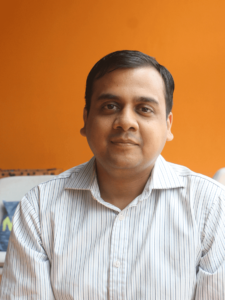All you wanted to know about MF Investments
Financial health is as important as physical and emotional health. Most often we take financial health casually. It is essential that all of us have enough knowledge and tools at our disposal to make informed choices to invest our money. I personally believe that some of the money we earn needs to go into investments while we spend the rest to live the kind of life we have worked hard for. I am a novice at anything to do with financial investments and rely on outside advise for it.
 I had the opportunity to speak with Nitin Agarwal, CEO, and Co-founder at Orowealth, who answered investment related queries directed to him me and my twitter friends. The chat, in fact, clarified so many things for me, and now I am empowered to make a more informed choice regarding my money. Below is the interactive chat we had, I hope this also helps you with your financial queries. You can always post in the comment any new questions you may have:
I had the opportunity to speak with Nitin Agarwal, CEO, and Co-founder at Orowealth, who answered investment related queries directed to him me and my twitter friends. The chat, in fact, clarified so many things for me, and now I am empowered to make a more informed choice regarding my money. Below is the interactive chat we had, I hope this also helps you with your financial queries. You can always post in the comment any new questions you may have:
Q: I am a working mother, although I am careful with the money I wanted to know what is the first step towards personal financial planning?
A: First step is what is called “essential planning” – have an emergency fund which covers 6 months of your expenses, buys a term insurance and a health cover for the family. Next step is to plan for your goals. Goals can be anything – retirement planning, child education
Q: How do I figure out how much money I need to save for retirement and what % of my salary I should invest to achieve that?
A: There are quite a few calculators available online for this purpose. For e.g. https://orowealth.com/calculators/retirement/ … Best is to seek services of a fee-based advisor to get your entire financial planning done.
Q: Wow. This calculator would definitely help in planning. Please tell me how can one work on one’s credit rating? Are there ways and means of improving it?
A: There is no magic bullet. Closely monitor your expenses and credit card balances. Eliminate outstanding balances. Use a calendar to track your payment dates. Pay dues on time.
Q: What would you say to women who want to become financially independent?
A: Becoming financially independent should ideally not be based on gender. Unfortunately, in our country, it can be. The first step is to take control of your expenses and start investing your savings. Try to develop a source of income, it can be from a job, a business.
Q: Why do you think our society is so biased towards women where finance is concerned? What can we do to make it better?
A: It is sad and unfortunate. I would urge every woman out there to try and become financially independent. Start saving and investing as soon as possible
Q: I was once told that PPF is one of the safest and best investments one can have. How does that compare to MFs?
A: PPFs are a great fixed return product but they come with a lock-in period (difficult to redeem money anytime). MFs also offer debt like returns (money market, liquid funds) and you can redeem anytime. PPF vs MF Depends on your needs
Q: What about buying land and gold? People are still doing that, in fact, the older generation insists. Are these still effective means of investment?
A: The effectiveness of investment depends on what one is trying to achieve. Financial assets (MFs, FDs) are needed for liquidity reasons. One needs to protect against inflation which real estate investment can also do, but then it is not easy to sell.
Q: Can you elaborate more on protection against inflation? How does one factor that in?
A: Investing in FDs which gives fixed returns may not help you protect against Inflation. Investing in equity/real estate can help you beat inflation in the long term. So typically, if you can invest for the long term, better to put a good allocation towards equity.
Q: Ok. Typically what’s a good investment mix? What percentage within an investment should go where?
A: Say you are planning for a long-term goal (5yr+, just to build wealth etc), you should have a good allocation to equity MFs (40-50% large cap, 10-15% mid and small cap) some allocation to liquid fund or short-term debt funds and a bit of gold..best to consult an advisor.
Q: Can this be done through your site?
Yes, would be happy to help. Please reach out to us at http://orowealth.com
Q: You suggested using a fee-based advisor but a common concern is that fee-based advisors are only for those who have a large corpus to invest. What do you think about that?
A: Not true anymore. SEBI introduced a new class of intermediaries – RIAs (Registered Investment Advisors). By law, they can only charge fees and not take commissions. There are quite a few RIAs now. We at Orowealth (also an RIA) manage clients with even Rs 10000 portfolio
Q: Thanks! I saw that you said you charge only INR 199 annually for investments up to INR 30 lakhs. That’s it? Sorry but I have to ask – what’s the catch? How do you make money from that?
A: Technology! We work extensively to offer personalized advice to our clients using automated tools. For e.g. we have built tools to provide deep insights into an existing portfolio by just asking the client for their pdf MF statement. Tech helps us in keeping cost low.
Q: Interesting. Will definitely look into it more. Can you serve NRI customers currently?
A: Thanks. Yes, we have quite a few NRI customers from all over the world – Singapore, HK, Mid-east, UK, US. Please sign up at http://Orowealth.com and let us know the feedback.
Q: What is the paperwork required to sign up? It’s usually a big hurdle in signing up for any financial service.
A: The process is completely online even for NRIs. You just need a PAN card and Indian bank account to invest (NRO / NRE in case of NRI).
Q: So you would only give financial advice and then the actual transaction/investment has to be done by me only right?
A: Yes, you can execute online
 Q: Ok. As a financial advisor will you only recommend broad investment mix & time horizon or will you also advise on the exact MF schemes to invest in when to exit etc.?
Q: Ok. As a financial advisor will you only recommend broad investment mix & time horizon or will you also advise on the exact MF schemes to invest in when to exit etc.?
A: We help you with all your investment related queries. The exact scheme, when to buy, when to sell. Not just MFs, also stocks, insurance, and PMS.
Q: I am looking at medium-long term investment (3+ yrs). I am already invested in Equities. For debt, which is better considering taxation at the max rate – equity arbitrage funds or debt funds?
A: In India, it does not pay to invest in long-term debt. So one should invest in short-term debt funds. Equity Arbitrage has less risk and will give you fewer returns (5.5%) whereas by taking slightly extra risk (credit or short duration) you can earn up to 8% via debt mfs
Q: Yes, I meant short-term debt, but I am going to hold it for longer (3+ years, so 20% with indexation would be applicable). For the last 2 years, I was investing in arbitrage funds SIP because of an absence of LTCG. Now with LTCG on equities, does it make sense to continue with arb fund?
A: If you are holding for more than 3 years, then better to go for debt MFs (credit funds or short duration funds) which can give you 8% p.a. with slight risk (taxed at 20% with indexation)
- Srushti Rao
- September 15, 2018
- 0 Comment





